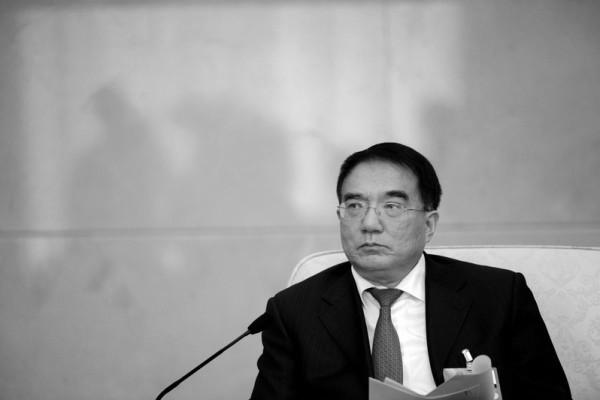Wang Min, formerly the Party Secretary of Liaoning, a province in northeast China, was once presumed to have a bright political future. The Washington-based Brookings Institution profiled him as a “top future leader to watch” in 2012.
Wang, however, was recently purged for “violating discipline,” a catchall reference to corruption of many types.
On Aug. 10, the Central Commission for Discipline Inspection announced that Wang, 66, was expelled from the Party, and sacked as deputy director of a committee in the regime’s rubber stamp legislature. A four-month long formal investigation of Wang had found him guilty of manipulating local elections, bribery, and misappropriating public funds for “grand feasting and drinking.”
Purges under Party leader Xi Jinping, while ostensibly aimed at disposing corrupt officials, involve cadres connected with a rival political network overseen by former Party chief Jiang Zemin. Cheng Li, a scholar with the Brookings Institution, wrote that Wang “may be a protégé” of Jiang, while the South China Morning Post reported that Wang is a prominent member of the Jiangsu Gang, a political clique linked with Jiang.
Wang’s political connections aren’t the only thing left out of the Party internal police’s report. International investigators say that Wang is responsible for the persecution of Falun Gong when he was in key leadership positions in two northeastern provinces.
On July 20, 1999, then Party chief Jiang Zemin instructed security forces to “eradicate” Falun Gong, a traditional Chinese spiritual discipline that an estimated 70 million Chinese citizens were practicing. Over 4,000 Falun Gong practitioners were killed in the now 17 year-long persecution, according to incomplete statistics compiled by Minghui.org, a clearinghouse for information about the persecution.
Researchers say that the regime is harvesting organs from live Falun Gong practitioners, killing them in the process. This act has been condemned by the United States House of Representatives and the European Parliament.
To encourage Chinese officials to participate in his persecution, Jiang Zemin had promised to promote those who demonstrated enthusiasm for it. Wang Min appears to be one of several officials who was rewarded for heeding Jiang’s call to arms.
The World Organization to Investigate the Persecution of Falun Gong, an NGO, holds Wang Min responsible for the arrest and imprisonment of three Falun Gong practitioners in Suzhou, a major city in southeast China, in December 2000. Wang was deputy chief of Suzhou when the practitioners were arrested, and was promoted to Suzhou Party Secretary in 2002.
Shortly after Wang was appointed as deputy provincial chief of Jilin Province in 2004, the local police stepped up their arrest and torture of Falun Gong practitioners, according to Minghui. A police in Jilin’s Changchun City, told Minghui that Wang had “attached great importance to the Falun Gong issue.” In April 2006, Minghui learned that Wang Jianguo (no relation to Wang Min), a 30-year-old Falun Gong practitioner, was brutally tortured to death in Jilin City First Detention Center, and his family is still being denied access to his remains.
More prominent persecution cases emerged after Wang Min became provincial chief of Jilin. About a month into Wang’s promotion, seven practitioners were arrested, and one was forced to commit suicide, according to Minghui.
Wang Min headed Liaoning Province in end 2009, and continued to follow Jiang’s orders. Minghui recorded 28 persecution deaths in the first four years of Wang’s Liaoning tenure.
The Liaoning authorities under Wang also tried to downplay abuses at Masanjia, a notorious women’s labor camp, at a time when Party leader Xi Jinping was in the process of abolishing the labor camp system. An April 2013 investigative report by Chinese media exposed abuses at Masanjia, verifying numerous accounts by female Falun Gong practitioners. But the Liaoning authorities dismissed the report as “not true” after a brief inquiry.
This year, Xi Jinping has made several unusual gestures which suggest that the regime may be entertaining the possibility of a shift in its policies toward Falun Gong in the future. The purge of Wang Min and other persecutors recently appears to coincide with Xi’s gestures.




